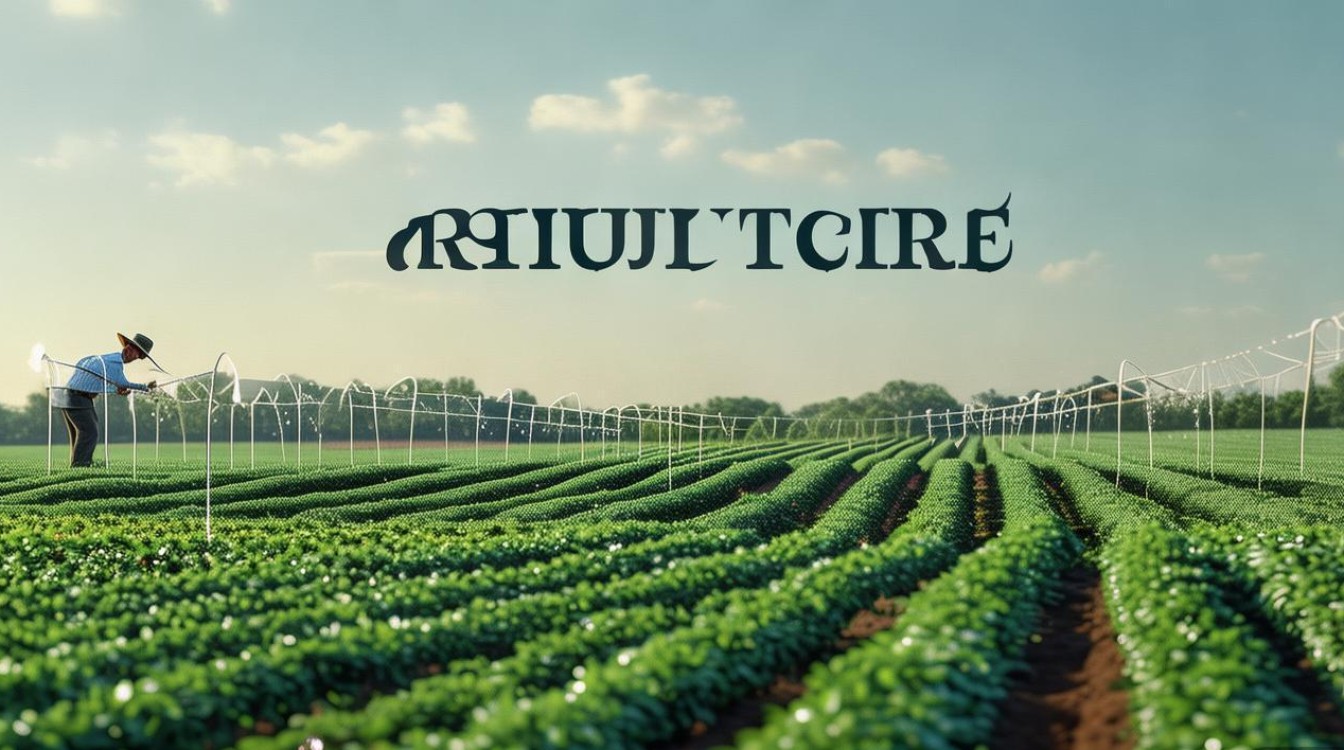在雅思口语考试中,话题的广泛性常常让考生感到挑战,而“agriculture”(农业)作为一个既传统又贴近生活的主题,可能出现在Part 1的日常对话、Part 2的个人经历描述,或Part 3的社会议题讨论中,无论是探讨现代农业技术、乡村生活变迁,还是农业与环境保护的关系,掌握相关词汇、观点和表达方式,都能帮助考生在口语考试中展现流利度和逻辑性,以下将从农业的核心概念、现代发展、挑战与机遇,以及口语表达技巧四个方面展开,并提供实用案例和FAQs,助力考生从容应对这一话题。

农业的核心概念与基础词汇
农业是人类最古老的产业之一,核心在于“cultivation”(耕作)和“husbandry”(畜牧业),目的是通过培育植物和养殖动物,满足人类对食物、纤维和原材料的需求,在雅思口语中,掌握基础词汇是第一步,
- Crops(农作物):分为food crops(粮食作物,如rice, wheat)和cash crops(经济作物,如cotton, coffee)。
- Livestock(牲畜):包括cattle(牛)、pigs(猪)、poultry(家禽)等。
- Farming methods(耕作方式):如subsistence farming(自给农业)、commercial farming(商业农业)、organic farming(有机农业)。
- Agricultural tools(农具):traditionally包括plow(犁)、hoe(锄头),modern则有tractor(拖拉机)、harvester(收割机)。
在Part 1被问及“Do you know much about agriculture?”时,考生可以简单回应:“Yes, basic knowledge. Agriculture is the foundation of food production, covering crop growing and animal breeding. My grandparents used to be farmers, so I learned some traditional practices from them, like how to plant rice seedlings.” 这样的回答既展示了词汇量,又结合了个人经历,符合口语考试“真实交流”的要求。
现代农业的发展与技术创新
传统农业依赖人力和自然条件,而现代农业则通过科技大幅提升了效率,雅思口语考试中,Part 3可能涉及“农业如何影响社会发展”这类深层问题,考生需了解农业的现代化转型:
技术与机械化
现代农业广泛使用technology(技术),如precision agriculture(精准农业),通过GPS、drones(无人机)和sensors(传感器)监测土壤湿度和作物生长,实现resource optimization(资源优化),drones can spray pesticides evenly, reducing labor costs and environmental damage.
可持续农业
面对environmental issues(环境问题),sustainable agriculture(可持续农业)成为重点,包括:
- Crop rotation(轮作):通过种植不同作物保持土壤肥力。
- Organic farming(有机农业):避免chemical fertilizers(化肥)和pesticides(农药),使用natural fertilizers(天然肥料)如compost(堆肥)。
- Agroforestry(农林业):将树木与农作物混合种植,biodiversity(生物多样性)和soil conservation(土壤保护)。
在描述“现代农业与传统农业的区别”时,考生可以对比:“Traditional farming relies on experience and weather, while modern farming uses technology to predict yields and control pests. For example, my hometown now has smart greenhouses that automatically adjust temperature and water supply, which was unimaginable 20 years ago.” 这样的对比清晰且有细节,能体现逻辑思维。
农业面临的挑战与全球意义
尽管农业技术不断进步,全球仍面临诸多挑战,这也是雅思口语Part 3常考的“问题解决类”话题,考生需了解以下关键点:
主要挑战
| 挑战类型 | 具体表现 |
|---|---|
| Population growth(人口增长) | 全球人口预计2050年达97亿,需增加food production(粮食生产)50%。 |
| Climate change(气候变化) | Extreme weather(极端天气)如droughts(干旱)、floods(洪水)影响作物收成。 |
| Resource scarcity(资源短缺) | Water scarcity(水资源短缺)和soil degradation(土壤退化)威胁可持续性。 |
| Labor shortage(劳动力短缺) | 年轻人更倾向于城市工作,农村老龄化严重。 |
应对措施
- Genetically modified crops (GM crops)(转基因作物):提高yield(产量)和resistance to pests(抗虫性)。
- Vertical farming(垂直农业):在城市中利用有限空间种植作物,减少transportation costs(运输成本)。
- Policy support(政策支持):政府提供subsidies(补贴)推广新技术,鼓励young farmers(年轻农民)返乡创业。
在回答“政府是否应支持农业”时,考生可以阐述:“Yes, government support is crucial. Agriculture is vulnerable to market risks and natural disasters. Subsidies for seeds and machinery can help farmers adopt new technologies. For instance, in my country, the government offers tax breaks to organic farms, promoting eco-friendly practices.” 这样的回答结合了具体措施和国家案例,内容充实。
雅思口语中的农业话题表达技巧
面对农业相关话题,考生需注意以下几点,以提升表达的自然度和准确性:
词汇多样化
避免重复使用“farm”或“grow”,可替换为:
- Cultivate (种植):Farmers cultivate tomatoes in greenhouses.
- Rear (饲养):They rear cattle for milk and meat.
- Harvest (收割):The harvest season for wheat is in summer.
结合个人经历
Part 2常要求描述“一次乡村经历”或“一种农作物”,考生可以分享真实经历,“Describe a traditional activity in your hometown.” 回答:“A traditional activity is the rice transplanting festival every May. Villagers gather in the fields, singing folk songs while planting rice seedlings. It’s not just farming but a cultural tradition that connects us to our ancestors.” 这样的描述既有画面感,又体现了文化深度。
使用逻辑连接词
在Part 3讨论复杂问题时,用连接词组织观点,
- “Firstly, technology improves efficiency; however, it may also increase costs for small farmers.”
- “In addition to climate change, economic factors like fluctuating food prices also impact agriculture.”
FAQs
Q1: 雅思口语Part 1被问到“Do you like agriculture?”时,如何回答更自然?
A1: 可以结合个人经历和情感表达,“Yes, I do. My family has a small vegetable garden, and I love growing tomatoes and peppers. There’s something satisfying about planting a seed and watching it grow into food. It’s also a great way to relax and connect with nature.” 这样的回答避免了简单的“yes/no”,通过细节展现真实感受,符合口语考试的“交流性”原则。
Q2: 在Part 3讨论“农业的未来”时,如何展开观点?
A2: 可以从“技术”“政策”“个人责任”三个层面展开,“I believe the future of agriculture will be shaped by three factors. Firstly, technology like AI and vertical farming will make farming more efficient and sustainable. Secondly, governments need to invest in agricultural education to attract young talent. Finally, as consumers, we can support local and organic farms to reduce the environmental impact of food production. This way, agriculture can balance productivity and ecology.” 这样的结构清晰,观点全面,能体现考生的分析能力。











